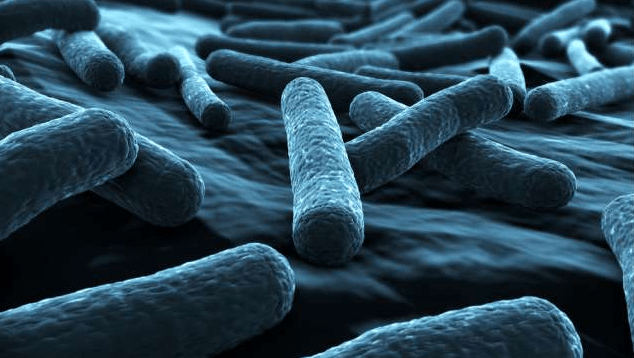In a twist on the classic "microbes that turn shit into petrol", researchers at MIT have developed a bacterium that turns carbon dioxide into a direct substitute for gasoline. When deprived of certain nutrients, the soil bacterium Ralstonia eutropha goes into hoarder mode, shoring up its carbon stores in anticipation of leaner times. The complex carbon polymers that the bacteria store happen to be very similar to petroleum-based plastics, a coincidence that wasn't lost on the scientists.
By tweaking the microbe's genome and adding genes from other organisms, the team was able to create a bacterium that makes isobutanol rather than plastic. The researchers are currently focusing on figuring how to manipulate the bacteria to use atmospheric carbon dioxide as a source, although it could feasibly be made to use agricultural or municipal waste. As if turning a greenhouse gas back into fuel isn't benefit enough, Ralstonia eutropha, unlike other microbes engineered to produce gas, continually excrete fuel and so don't need to have be destroyed in order to extract the chemical. The scientists hope these microbial factories may one day compete with the ethanol industry as the primarily source of biofuel.
Via MIT.

Mema
extinction is inevitable in said peirod of time Let me answer your question by first asking a question of my own: If everyone learned for certain that the Earth only had 20 years left before all life on it ended, what would be the point of parents doing the hard work of continuing to parent their children? Shouldn't they all just give up?Sadly, I do think, if such news was delivered, more of that kind of thing would happen than most would like to admit. But keeping it the context of a thought experiment, I think we can all agree that giving up on parenting would be an absurd notion under such circumstances. And the reason we nearly all see it this way is because we nearly all recognize that parenting is a labor of love. Parents don't parent solely for what they think the end result will be. There are all kinds of other joys along the way that make every second worth it. So much so, in fact, that if a parent knew that she/he only had 20 years left, she/he would likely put more attention and hard work into parenting, not less. After all, how better to spend one's last days on Earth?Likewise, folks who are today the most passionate about being conservationists would give you many reasons for what they do, most of which would still apply even if they thought the world was going to end in their lifetimes. For a partial list: they enjoy the beauty of wild places untamed by human development; they enjoy knowing that at least a few animal species other than humans are allowed to live in their natural habitats; they enjoy eating foods grown without chemicals because they taste better and make them feel more nourished; they enjoy knowing they're only using what they need, even though they could easily use more; they enjoy the peace of mind and simplicity that usually accompanies living a sustainable life The list could go on. But really, forget about passionate conservationists for a moment. Wouldn't TONS of people want to spend at least a bit of their withering time on Earth visiting the wild places that they know are about to disappear forever? Furthermore, if, upon hearing that there were only 20 years to go, some folks took chain saws and started cutting down an old forest just for fun since it doesn't matter anymore anyway wouldn't most people find this objectionable, because they'd actually like to enjoy that forest with some of the rest of the time they have left?Point being I don't think I'm actually alone in thinking like this. Yeah, I suppose if a person sees their conservation efforts as hard work , they'd see no point in doing it anymore if they somehow knew it wouldn't achieve the specific goals they’d been aiming for. But for some folks these efforts are rife with every-day meaning and don't feel like work at all. For them, the work for the last 20 years might become even more meaningful, not less.
Posted on